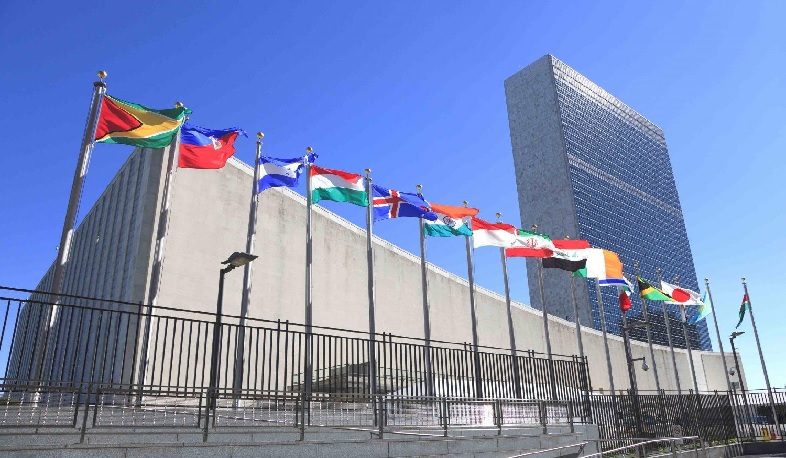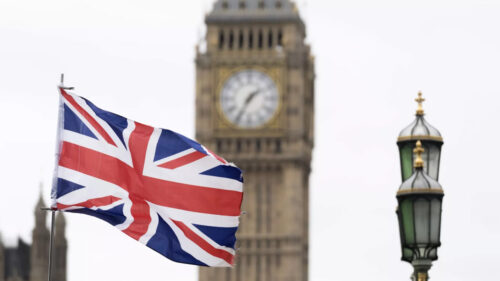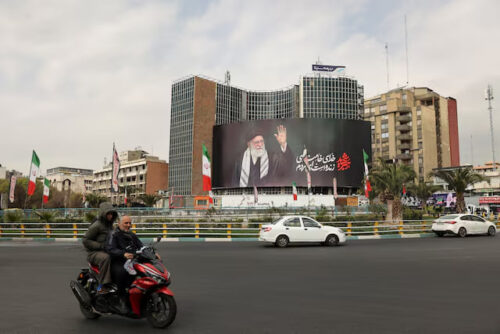
The Blunt Post: The UN ignores the Artsakh Genocide by holding its climate conference in Azerbaijan
Allowing a totalitarian country to host a United Nations event constitutes deliberate complicity by the U.N. and participating nations in the genocidal acts perpetrated against the Armenian nation by the Azerbaijani government, the propagation of falsified historical narratives, and the misappropriation and erasure of the cultural and religious heritage of the Armenian people, The Blunt Post writes.
As noted, the U.N. ignores Azerbaijan’s campaigns of hate, violence, and disinformation against the Armenian people and its ambition to destroy the Republic of Armenia and fulfill its pan-Turkic ambitions. The Aliyev government has also recently become more radical in its ideology. ‘The regime is more nationalistic and militaristic than it was in the past. It no longer has any restraint,’ political scientist Bahruz Samadov of Charles University in Prague said.
On Sept․ 27, 2020, Azerbaijan, with help from Turkey, orchestrated a new genocidal attack and ethnic cleansing against the civilian indigenous Armenians of the Republic of Artsakh․ “With arms, intelligence, training, and game-changing weapons from Israel, the two regional powers recruited and brought to Azerbaijan ISIS, Syrian, Libyan, and Pakistani jihadist mercenaries to slaughter Armenians and to carry out a wide-scale ethnic cleansing. The mercenaries were promised $2,000 a month to kill Armenians and $100 bonuses for every Armenian beheaded alive. For nine months, starting in December 2022, Azerbaijan illegally blocked the Lachin Corridor, the only road connecting Artsakh to Armenia and the rest of the world, to starve 120,000 Armenians. Despite provisions and calls from nations, international bodies, and human rights organizations to open the corridor, including from the International Court of Justice, the United States Congress, and the Lemkin Institute for Genocide Prevention, Aliyev’s regime defied and doubled down, with frequent offensives on the population of Artsakh,” reads the report. As noted, between Sept. 19 and 20, 2023, Azerbaijan launched a 24-hour military operation against Artsakh. Officials reported that 200 people died in the attack, and 400 were wounded. At least ten civilian deaths were reported, including five children, as a result of the operation. By forcing people to flee to Armenia with its deadly offensive, Azerbaijan succeeded in ethnically cleansing Artsakh of its indigenous Armenian population.
The article says that since its independence in 1991, Azerbaijan has been following “caviar diplomacy.” Bribery has also been deliberately deployed by Baku outside the country—including officials associated with the Council of Europe. Azerbaijan is also one of the most corrupt countries in the world, where freedom of speech is suppressed. Journalists are harassed, blackmailed, and subjected to bribery attempts. If they resist, they are imprisoned. Those who leave the country and their families are persecuted.
In addition, oil and gas exports account for about 90 percent of Azerbaijan’s exports and 60 percent of the state budget. According to the International Energy Agency, oil and gas account for more than 98 percent of Azerbaijan’s total energy supply. Moreover, despite its rhetoric about managing environmental impacts, Azerbaijan’s flagship state-owned energy company, SOCAR, holds one of the lowest places in the Oil and Gas Benchmark Ranking of the World Benchmarking Alliance.
“Representatives of the Azerbaijani government say they want this summit to be a ‘Peace Summit.’ This is when it has not even been a year since they invaded a neighboring country, and they have yet to reach the acceptance of a just peace agreement. Azerbaijan continues to hold political prisoners and fails to improve the human rights situation,” reads the article.
The United Nations must stay true to its principles and demand the following from Azerbaijan:
- Recognize the Artsakh Genocide
- Recognize the Republic of Artsakh
- Allow Artsakh Armenians to return to their native land
- Guarantee the security of Artsakh
- Make reparations to the people of Artsakh for war crimes and crimes against humanity
- Release all Armenian hostages and those kidnapped from prison
- Release all political prisoners and journalists from prison regardless of nationality.
Azerbaijan’s proposal for a truce during COP29 rings hollow unless the above-mentioned conditions are met unequivocally.
Today, the U.N. stands at a crossroads that will determine whether it is an organization that caters to criminal states or continues to uphold some of its most relevant foundational principles of ensuring the protection of human rights, environmental responsibility, and anti-corruption policies. These policies stand in stark contrast with the U.N.’s decision to hold the COP2 conference in a country that blatantly tramples them, as it confidently showcases the complicity of the U.N. in its pursuit of global and regional criminal activities.



